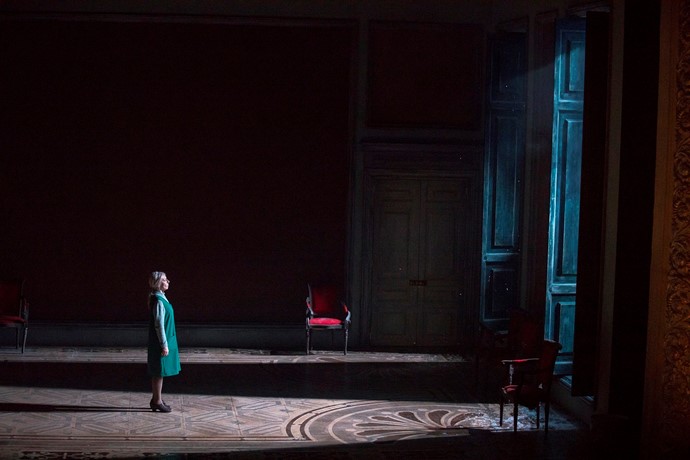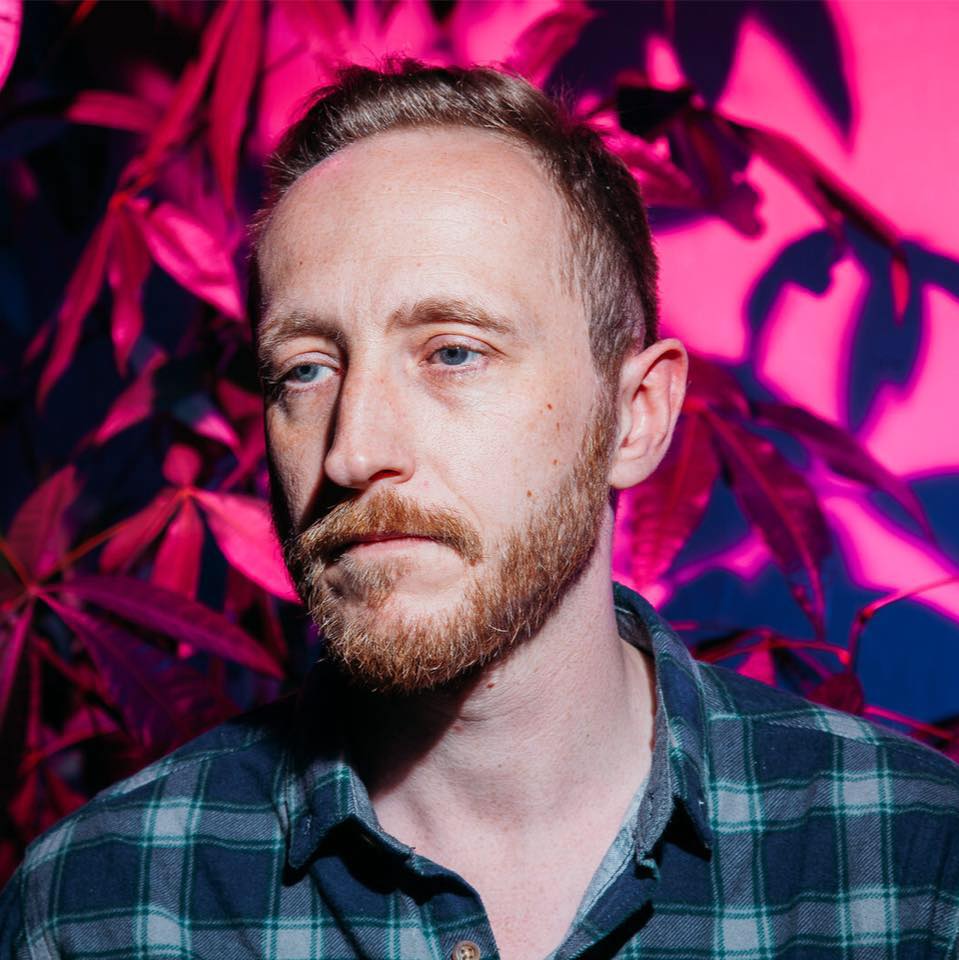‘Where are they now, those golden days of my youth?’
The past hangs over the characters in Pyotr Illyich Tchaikovsky’s Eugene Onegin like a veil. The folly of youth and the burning shame of costly pride are not dimmed by the passage of time, but are instead, only magnified.
Early in Scottish Opera’s vibrant production there is a potent sign that the bucolic surroundings of harvest time and the budding spirit of spring love might soon be dispelled. As Madame Larina (Alison Kettlewell} and Nurse Filipyevna (Anne-Marie Owens) reminisce about the courtships of their youth, and as the matriarch’s daughters Olga (Sioned Gwen Davies) and Tatyana (Natalya Romaniw) sing merrily, the chorus of peasants celebrating the harvest make an ominous appearance. Dressed entirely in black, there is steeliness in their stares, while the pitchforks – suggestive of devilment – and the scythes – a portent of death –carry a cold menace.
Inspired in large part by Alexander Pushkin’s celebrated verse novel – and some of the turmoil in Tchaikovsky’s personal life – Eugene Onegin’s simple tale of loved spurned, fatal jealousy and, in the end, honour and fidelity, has proven to be enduringly popular among opera fans since its premiere in 1879.
Perhaps its appeal to successive generations lies in its very earthiness, its romance rooted in the everyday, dreams that remain elusive, and core values of loyalty and faithfulness that, if not exactly triumphing, at least withstand the temptations that would threaten them.
It mightn’t be the most adventure-filled opera – Tchaikovsky rather modestly considered it not an opera but a lyric suite – but the story and the characters, brought to life quite superbly by the cast of Scottish Opera, are eminently believable. Innocent young country girl Tatyana falls for the suave, visiting urbanite Eugene Onegin (Samuel Dale Johnson) and pens him a letter declaring her undying love. Onegin rejects her proposal and poor Tatyana is broken-hearted. All this takes up Act One.
So far so simple, yet the production, which is the coming together of multiple interlocking cogs, is little short of spell-binding.
Director of the Royal Opera House, Oliver Mears, returning to the scene of so many triumphs during his seven-year tenure of Northern Ireland Opera, brings a rhythmic energy and a modernist’s panache to Tchaikovsky’s largely self-penned libretto; the Orchestra of Scottish Opera, under the animated baton of Stuart Stratford, delivers Tchaikovsky’s brilliant score with equal measures flare and finesse; dancer Eve Mutso’s balletic interventions mesmerize; the constant presence of Old Tatyana (Rosy Sanders) lends a dreamlike quality to the unfolding story.
Then there is the set, a protagonist of great importance in this production. Multi-award winning designer Annemarie Woods’ atmospheric stage settings conjure life for bourgeoisie and peasantry alike in the 19th century Russian countryside. The salon of the country estate where the story unfolds exhibits a subtly faded grandeur that seems to mirror Tatyana’s faded dream. The tall, shuttered windows are, at various points during the opera, portals for mist and snow, morning light and the peasants’ voices; they are symbols of both the passage of time, and with the wind bashing them back and forth, of the gathering storm within.
Fabiana Piccoli’s atmospheric lighting and Ashley Page’s choreography breathe with the sensibility of a musical score. Little touches like a steaming samovar, specifically Russian dance steps, and the arrival of Vladimir Lensky (Peter Auty), leading his friend Onegin on a beauty of a horse – where do opera horses come from and what life do they go back to? – all add to the production’s vivid canvas.
One of the bedrocks of this Scottish Opera production, however, is in the acting. Opera, on occasion, can come across as woodenly delivered costume drama at one extreme, or exaggerated melodrama at the other. On the Grand Opera stage, however, the roles, big and small, are acted out by Scottish Opera’s players with convincing sincerity. Who will forget Auty’s fit of jealousy when Lensky’s beloved Olga dances flirtatiously with Onegin? Who could fail to be moved by Auty and Johnson’s emotionally charged exchange prior to the fatal duel between the old friends Lensky and Onegin that condemns the surviving Onegin to a life of self-torment?
Life-affirming too, Romaniw’s impassioned delivery of Tatyana’s final scene rejection of Onegin – whom she still loves – out of loyalty to her husband, Prince Gremin (Graeme Broadbent). Her powerful closing aria is one of the highlights of the opera, searingly pained yet beautiful. Any production of Eugene Onegin could be said to stand or fall on the final scene encounter between Tatyana and Onegin, with its implicit anguish and despair, desperate pleading and resolute conviction; Romaniw and Johnson rise to the occasion and deliver outstanding performances in what is a most affecting scene.
The final gesture, however, goes to Old Tatyana, who calmly tears up the letter penned in her naïve maidenhood and casts the pieces into the air. In a poetic touch of choreography a shower of little pieces of paper rains down on the stage from above. The curtain falls and the Grand Opera House, on its feet as one, offers rapturous applause in return.
For Tchaikovsky, the relative absence of much sustained drama – the duel apart –in Eugene Onegin mattered not a jot compared to the feelings the characters transmitted to him; feelings and situations whose intimacy and poignancy resonated with the composer for their authenticity. In this respect, Scottish Opera scores a notable success, for the beauty of the score, replete with impressive arioso, arias and stirring chorus interjections, is heightened greatly by the humanity of the acting.
This wonderfully moving production of Eugene Onegin by Scottish Opera exudes the sort of operatic magic that reaffirms one’s love for this art form, and which converts opera debutants into life-long fans. Ian Patterson
Photo by James Glossop






